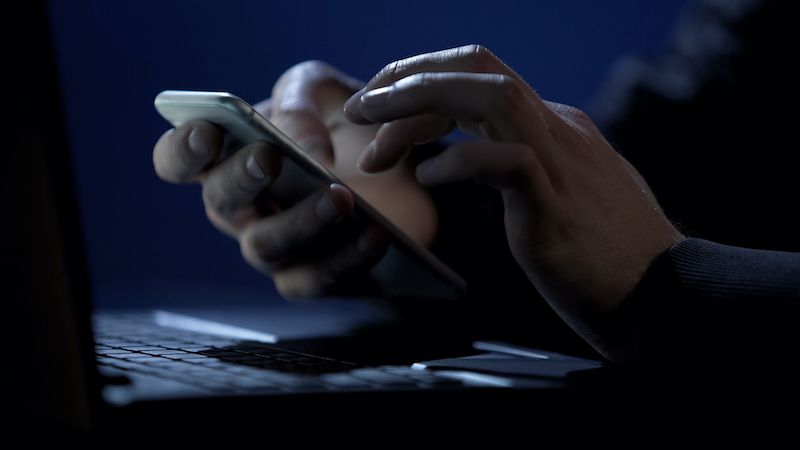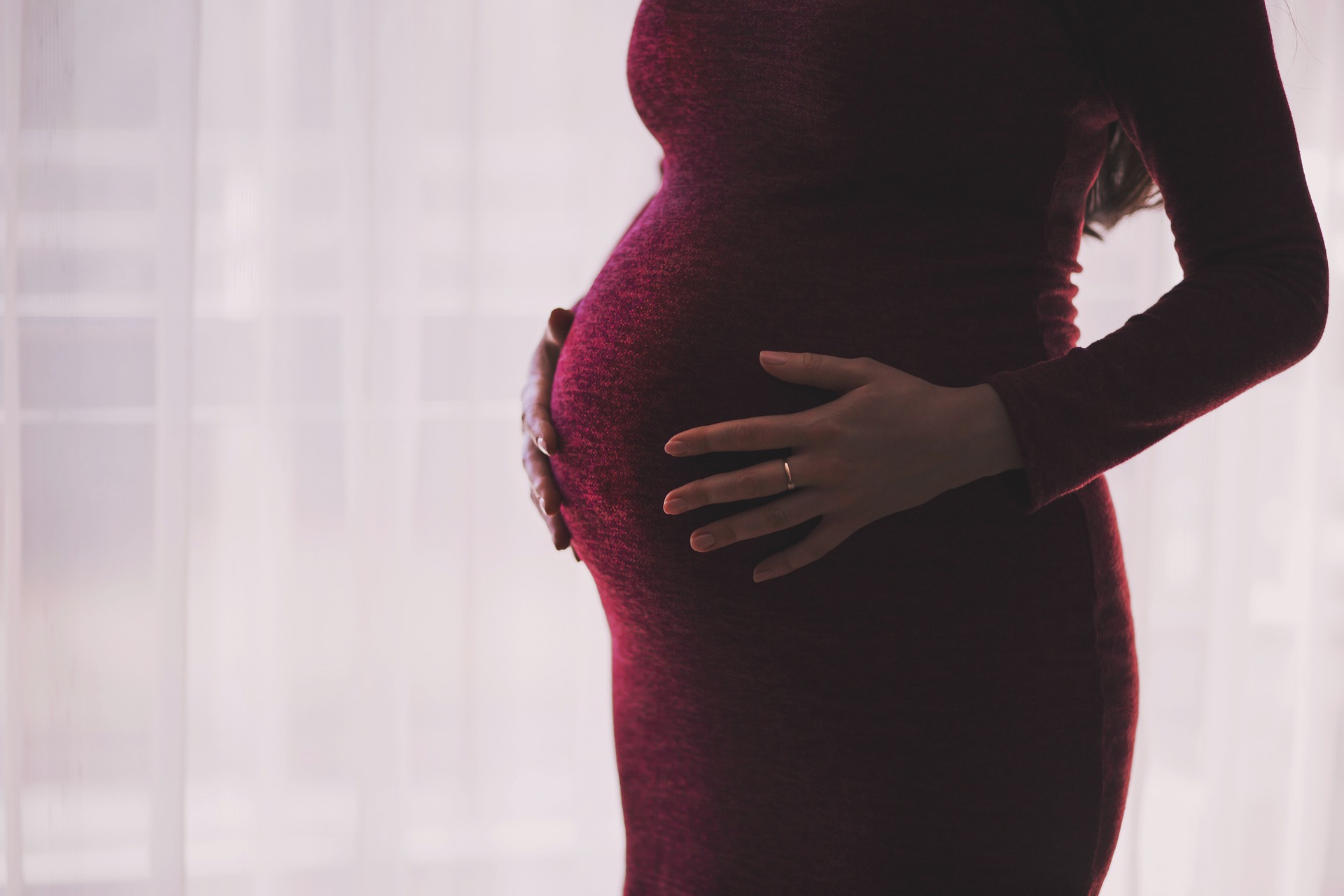


Excessive messaging, turning up at work, threats of self-harm... An islander who left a relationship while pregnant after being subjected to coercive control has shared her experience to help others spot the warning signs and get the help they need.
Lucy* shared her testimony after a review into the death of Pamela Nisbet, who was killed by her son in 2019, concluded that more needed to be done to help sufferers of domestic abuse and coercive control.
As Lucy explained, the latter can start off "very gently".
She described the first signs of coercive control in her relationship as “breadcrumbs”, with the person wanting to spend lots of time with their partner, or seeking lots of reassurances.
“I think a lot of people think that’s just the way their relationship is,” she said.
“Two people in a relationship, they come together but they have had lives before they were together, you still need to have your own independence from each other, whether that’s your time, your finances, spending time with your family or friends, which you had before you met them. But that person wants to take all of that because they want to take over your time and do not want you to spend any time with anyone apart from them.
“You lose your own identity because you start to lose your own independence as that person is not allowing the things you were doing before you met them.”

Pictured: Lucy said the man would message her "excessively" and want to know what she was doing at all times.
Lucy said the man she had only been seeing for a few weeks wanted to spend all of his time with her to the point that she felt suffocated because she didn’t have “any space”.
“He would wait for me outside my home after I finished work, he would want to know everything I was doing, there was excessive messaging, if I had friends at home, he would turn up…"
The behaviours also included “aggressive guilt trips, manipulation, emotional blackmail, threats, and mental mind games.”
Lucy explained there were even behaviours she would not have put down to coercive control, but that advisors helped her understand afterwards were indeed attempts at controlling her emotionally.
Having recognised that her partner was exhibiting several controlling behaviours, Lucy decided to leave the relationship.
But the behaviour didn't end there - the man threatened to harm himself if Lucy didn’t comply with his requests to see her or discuss things even after she had ended things.
He also kept asking for private information about her and the baby she was expecting as well as requesting to attend medical appointments.

Pictured: Lucy's GP helped her access the support.
Lucy said she was not only lucky to get out of the relationship when she did, but also to get support from her GP and other services in the island, including the Women’s Refuge and Jersey Domestic Abuse Support, who provided her with an Independent Domestic Violence Advisor (IDVA).
“I saw my GP a couple of months after [leaving the relationship]. I was still distressed and struggling to deal with the pressure he was putting on me,” she explained.
“My GP had been trained through the IRIS programme and recognised the signs and put me in touch with the Women’s Refuge, who did a risk assessment with me and helped me put safety plans in place.
“The advisor did warn me that as the pregnancy went on, his behaviour would change or accelerate, as pregnancy is a big trigger for domestic abuse. As his behaviour got worse, I was given more support. I knew it was there if I needed it.”
As her former partner’s behaviour escalated, Lucy received a personal alarm equipped with GPS tracking and directly connected to the Emergency Services control room for “extra security”. Her phone number was also prioritised as a “trigger call” by the police so that any of her calls would go straight through even during busier moments.
She was given advice about what to do to avoid her former partner coming to the hospital after she had given birth, which included putting an alert on her medical records so that staff would know he was not allowed to have access to her and the baby and registering the birth afterwards so that he would not be named on the birth certificate.
“There is more help than people know,” Lucy said.
“The support is really good, but I just do not think people are necessary aware that you can access it through your GP, if you do not feel comfortable going down the criminal justice route.
"You can of course also access support directly through Jersey Women’s Refuge or Jersey Domestic Abuse support. However, I would always say that if there is an immediate threat to your safety you should call the police on 999.”

Pictured: Lucy said she was worried about her safety and that of her baby.
Even with the help, Lucy said she was in “constant fear” of seeing the man around the island, or that he would be waiting for her at her home.
“You constantly look over your shoulder,” she said. “You are worried about their next step because they are not acting in a rational way. I was worried for my safety and the safety of my baby as well.
“I was paranoid all the time, it was difficult to relax. I was worrying that his behaviour would be escalating closer to the birth.”
She said it felt important to share her experience to help raise awareness of coercive control not only for the victims themselves, but also to help their family members and loved ones understand its impact.
“I found it very difficult with my family when I stopped the relationship - they only understood the impact after, they didn’t really get it at the time, which made me feel more isolated,” she noted.
“It constantly chips away at your confidence and your self-esteem, because the person is constantly challenging what you are saying. It’s kind of like a bully at school or at work but the bully is in your home.
“The controlling behaviour and the mental manipulation are harder to get over than physical abuse, it makes you question your own mind, it’s like having two parallels of the truth. It’s taking you away from your network of friends and family so that you are on your own. It can be difficult to build those relationships back up.
“It has a massive impact on your confidence and self-esteem and makes you more vulnerable than you were before.”
She also warned victims that while the early signs of coercive control might appear small, they will usually grow into something worse.
“This stuff does not start small and then stops, it builds, which is why it’s important to get out,” she said.
“I recognised the signs very early this time and I had the courage to step away, I was not going to stand for it this time. But I know it’s not easy because you have to recognise the signs. It starts very, very small and builds so you do not necessarily realise what’s happening.
“It was a hard decision to come out of the relationship and raise the child myself but it’s far better to do that than being in an abusive relationship.
“No one should have that much hold over your life, your safety and your happiness are the most important things.”
To help raise awareness of coercive control, which will be defined in the upcoming Domestic Abuse Law, the Home Affairs Department shared more information about what this type of abuse can look like...
At first, everything can seem normal in the relationship. The relationship starts as a loving one; their partner is kind, considerate and thoughtful towards them. But over a period of time, the relationship starts to deteriorate and the abusive and controlling behaviour begins to creep in.

Pictured: Coercive and controlling behaviour (and domestic abuse in general) does not just occur in intimate relationships, but also between family members and former partners.
Often the controlling behaviour starts in a way where the victim doesn’t really realise that they are being abused, for example:
This is not an exhaustive list and a perpetrator will often tailor their conduct to their victim, and that this conduct can vary to a high degree from one person to the next
When someone abuses through controlling and domineering behaviour, the underlying plan and motivation of the abuser is to sap the other person’s self-esteem, to isolate them and make them wholly dependent upon the abuser as a form of control.
They may also use other ways to control, for example:
It is important to highlight that coercive and controlling behaviour (and domestic abuse in general) does not just occur in intimate relationships, but also between family members and former partners.
It does not relate to a single incident, rather a pattern of behaviour that takes place over time, in order for one person to exert power, control or coercion over another. A pattern of controlling or coercive behaviour can be well established before a single incident is reported.
In many cases the conduct might seem innocent – especially if considered in isolation of other incidents – and a victim may not be aware of, or be ready to acknowledge, abusive behaviour. The consideration of the cumulative impact of controlling or coercive behaviour and the pattern of behaviour within the context of the relationship is crucial.
Comments
Comments on this story express the views of the commentator only, not Bailiwick Publishing. We are unable to guarantee the accuracy of any of those comments.